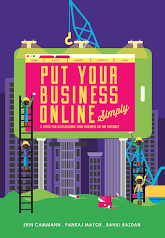Why WordPress Themes Don't Work for Small Businesses Where does WordPress fall short?

There was a time when WordPress was little more than a simple website building tool -- an easy solution for bloggers. Over the years, WordPress has grown into a powerhouse, and some of the world's most complex website are using it.
To be sure, WordPress has its perks: hundreds of plug-ins are available which add countless features to your website, and there is a tight community of developers online who are willing to address any questions users have about the tool.
Still, for the average small business owner -- one who doesn't have a background in web development or technology -- WordPress can be an overwhelming solution. Rather than building their website themselves, users often find they need to hire a developer to help them, which is a costly process.
While WordPress is good for developers, there are 5 areas where the tool fails the needs of small businesses.
There is a vast world of WordPress templates available, and while this can seem exciting, more often than not, it's daunting for the average person to sort through and pick a template that works best for their business.
Once a template is chosen, you'll have to integrate tools like newsletters, calendars, and maps yourself, using third-party applications, or plug-ins.
The downside? The template you've chosen might not be properly optimized for use across different mobile devices or web browsers, and you'll be responsible for maintaining the site and making any necessary upgrades to keep the site up to date on your own. And those plug-ins you added? Maintaining them falls in your lap, as well. Again, this responsibility and tech know-how can be daunting for the average person, and often requires hiring a developer.
2) Engaging the Customer
If you need an e-commerce solution on your site -- and let's face it, as a small business owner, having one is critical -- you'll need to use external merchant account services. Also, the only way to offer discounts, send messages, and manage or schedule appointments is through third-party apps -- which you're responsible for adding and maintaining on your own. Unfortunately, if you want complex transactions like offering quotes followed by payment, or allowing partial payments, you'll be stuck. These features aren't available through WordPress.
3) Business Operations
As a business owner, staying on top of your business's operations and making sure all aspects are streamlined is undoubtedly important. With WordPress, you will need to engage third-party resources for things like website hosting, sales tracking, and client management. Similarly, flexible security -- allowing only specific users access to certain areas of the site -- is not native to WordPress and requires management through a third-party plug-in.
4) Security
WordPress is an open-source service and is susceptible to hackers, as highlighted in a January 2015 hacking incident which affected many small and medium size businesses' websites. In that incident, a botnet targeted WordPress users with the username "admin," (yes, there are still people who don't change their username) and tried to access thousands of possible passwords.
5) Support and Cost
It's tempting when you see that WordPress's basic web building service and many of its templates are free, but keep in mind you'll most likely need a more robust solution than what those free templates offer. Hiring a developer to include more complex solutions into your website can cost hundreds of dollars, at the very least.
As for support? There is a blog available through WordPress where developers will answer questions, but there is no dedicated phone or online user support.
What's the solution?
Business owners can opt to build their company website using an automated platform like Ocoos, which offers an off-the-shelf solution to website building. Sales solutions and core business offerings -- like a discount manager, appointment scheduler, and customer relationship management system (CRM) -- are already integrated into the platform so you won't have to rely on third-party apps, and your site is automatically optimized across different devices and web browsers.
Any changes to technology or upgrades to the site are handled by the platform -- you won't ever have to worry about doing it yourself. And if you're leery about building your own website, Ocoos also offers a concierge service for an additional cost which will build a website for the customer. Both telephone and online support are also available.


